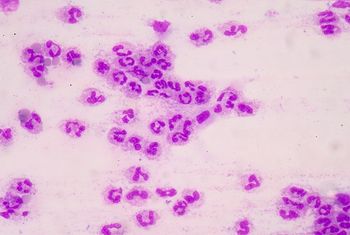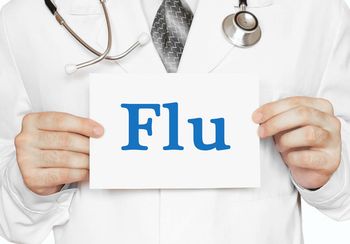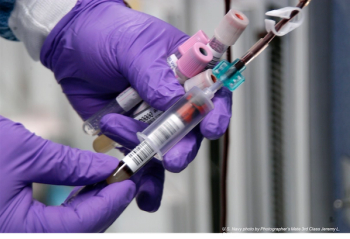
Chlorhexidine gluconate bathing plays a large role in infection prevention practices and patient buy-in is an important aspect of ensuring compliance.

Chlorhexidine gluconate bathing plays a large role in infection prevention practices and patient buy-in is an important aspect of ensuring compliance.

The proliferation of malaria-specific cord blood CD4+ T cells is associated with protection from childhood malaria.

Despite concerning findings and warnings, fluoroquinolones have remained one of the world’s most commonly prescribed antibiotic classes, with the United States accounting for more than 32 million prescriptions in 2015 alone.

Men who experienced seroconversion following the advent of antiviral therapy (circa 1996) and who received treatment were found to be more likely to reduce risk behaviors.

We’ve rounded up a list of recalls issued by the US Food and Drug Administration (FDA) and the US Department of Agriculture (USDA) from this past week.

Stay up-to-date on the latest infectious disease news by checking out our top 5 articles of the week.

Building on decades-old research, scientists in France say they’ve developed an effective rectal delivery formulation of an antibiotic used to save infants with life-threatening neonatal sepsis.

A new study suggests that combined antiretroviral treatment in patients with HIV does not prevent viral load rebound in semen after the treatment is paused.

A new study by investigators in Japan finds that earlier antibiotic stewardship intervention decreased antibiotic usage and costs and were associated with reduced rates of antibiotic resistance.

People with HIV display signs of advanced aging when certain biomarkers are studied.

In a plenary at the HIV Research for Prevention conference, Anthony Fauci, MD, discussed the need for implementation of new HIV prevention mechanisms.

Because of the recent concern in the United States around the rise of resistant pathogens, intravenous fosfomycin has gained renewed interest because of its activity and demonstrated synergy with other classes of antibiotics.

The assays are supported by the ID NOW platform with an instrument-based isothermal system for the qualitative detection of infectious diseases.

A new study highlights the potential predictive power of genome sequencing.

The system allows for the rapid identification of bacteria directly from positive blood cultures, and can determine the antimicrobial susceptibility of the blood-borne pathogens.

Today, the US Food and Drug Administration approved Xofluza (baloxavir marboxil) for the treatment of acute uncomplicated influenza (flu) in patients 12 years of age and older who have been symptomatic for no more than 48 hours.

The CDC is investigating an outbreak of Salmonella Newport that is suspected to be linked to contaminated ground beef products.

The New Jersey Department of Health has confirmed 18 cases of human adenovirus type 7 in pediatric patients.

In 2017, 47 outbreak cases of mumps were reported in the Denver Metropolitan area among individuals who attended Marshallese church events.

The phase 3 CAPSTONE-2 trial shows treatment with baloxavir marboxil significantly reduced the time to improvement of flu symptoms compared with placebo.

Use of the FDA–cleared Accelerate Pheno blood culture detection system can shorten the time required to analyze patients’ blood samples leading to improved clinical outcomes, according to the results of a recent study.

The US Food and Drug Administration (FDA) has extended approval for the use of AFLURIA quadrivalent influenza vaccine in individuals 6 months and older.

It’s time to consider the newly diagnosed population as distinct from the HIV-infected population as a whole when measuring viral suppression levels.

At the HIV Research for Prevention, in Madrid, Spain, the Global HIV Vaccine Enterprise presented a framework for working towards the development of a safe and effective HIV vaccine.

A new report from the CDC shows substantial progress on the incidence of health care-associated infections in the United States, but there is still more work to be done.

We’ve rounded up a list of recalls issued by the US Food and Drug Administration (FDA) and the US Department of Agriculture (USDA) from this past week.

Stay up-to-date on the latest infectious disease news by checking out our top 5 articles of the week.

From August 2014 to September 2018, the CDC received information on a total of 386 confirmed US cases of a polio-like illness occurring mostly among children.

Herpes simplex virus type 1 is associated with a higher risk of Alzheimer’s disease, yet the antivirals prescribed to treat the infection may reduce the risk of dementia.

The inactivated recombinant vaccine protected guinea pigs that were exposed to the Lassa virus 58 days post-vaccination.